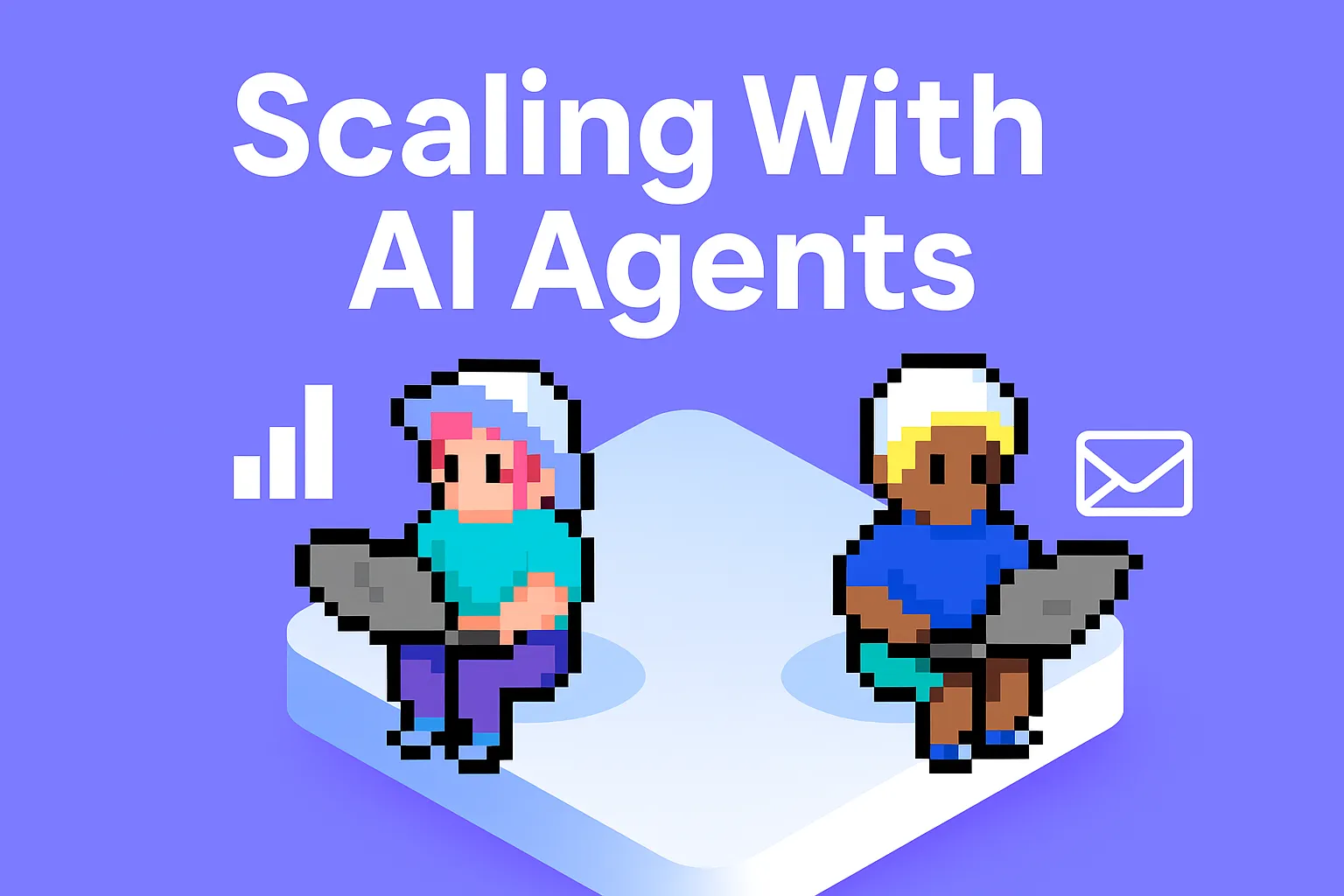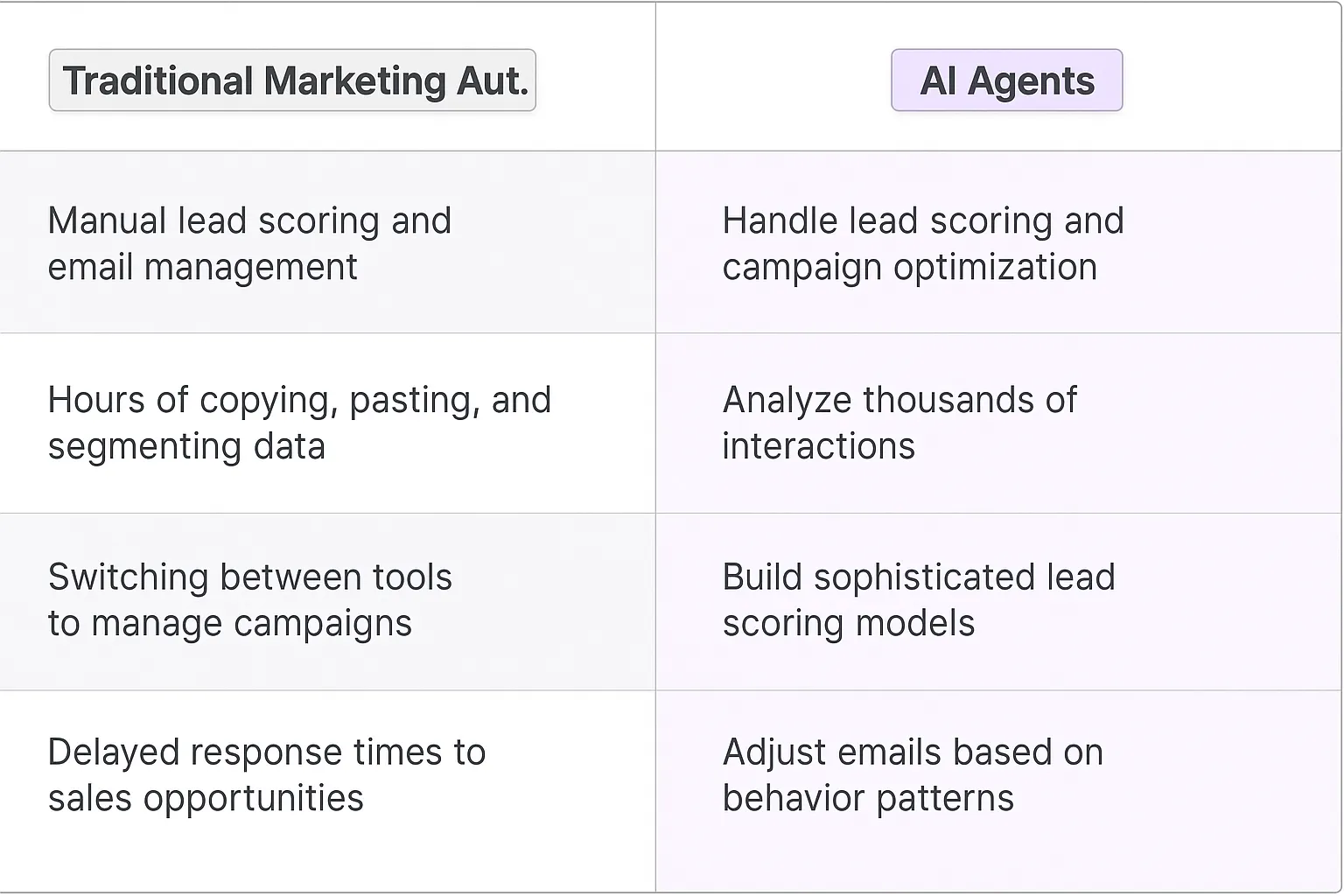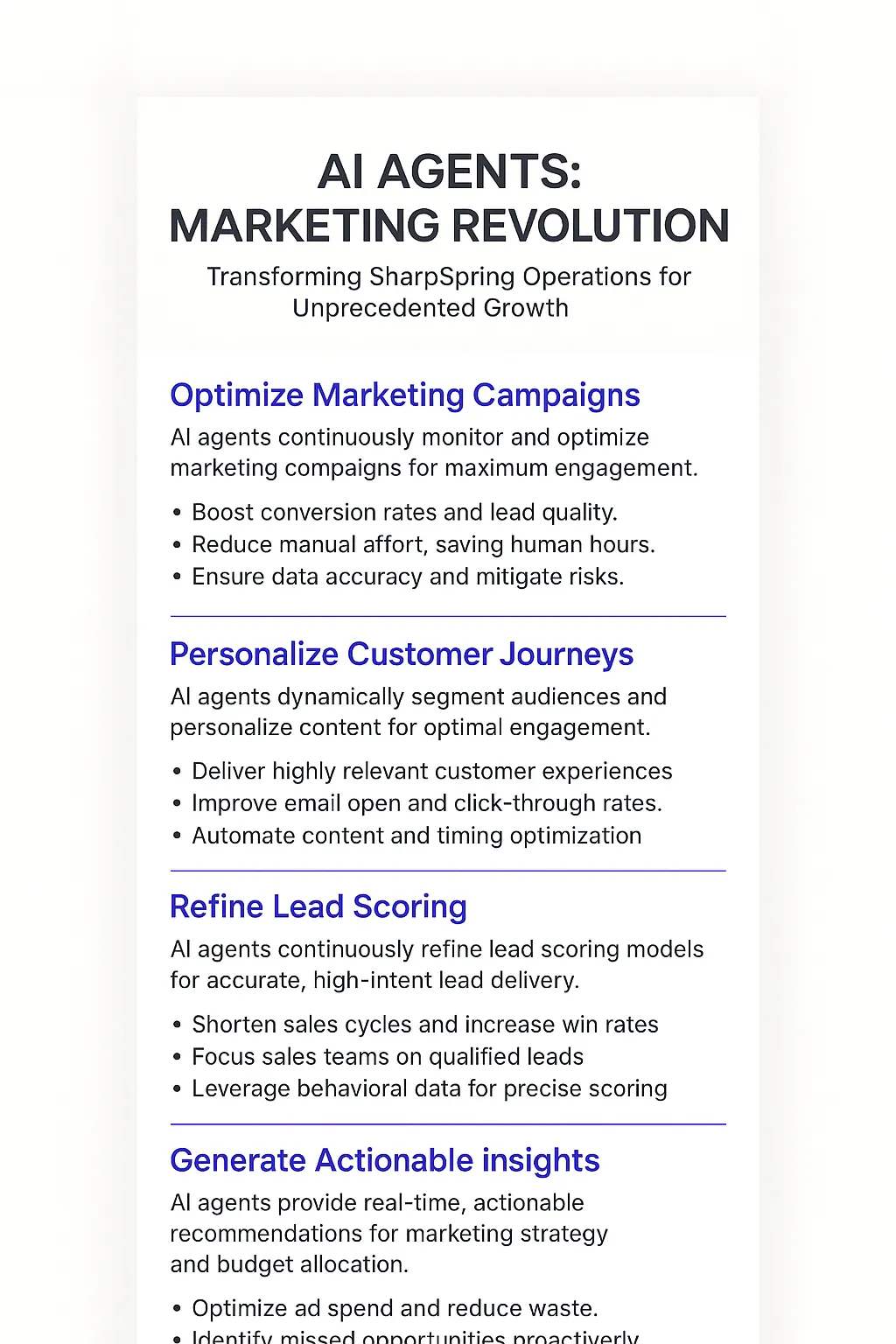SharpSpring
Understanding SharpSpring's Marketing Automation Platform
SharpSpring stands as a comprehensive marketing automation platform designed for agencies and businesses seeking sophisticated campaign management capabilities. The platform combines CRM functionality, email marketing, social media management, and analytics into a unified marketing ecosystem. Unlike traditional marketing tools, SharpSpring emphasizes flexibility and scalability, making it particularly valuable for growing organizations.
Key Features of SharpSpring
The platform's core strengths lie in its dynamic lead scoring, behavior-based email automation, and robust analytics capabilities. SharpSpring offers deep CRM integration, allowing marketers to track the entire customer journey from first touch to conversion. The platform's visual automation builder enables complex campaign creation without requiring technical expertise, while its reporting tools provide granular insights into campaign performance and ROI tracking.

Benefits of AI Agents for SharpSpring
What would have been used before AI Agents?
Marketing teams using SharpSpring traditionally relied on manual processes and multiple team members to handle lead scoring, email campaign management, and CRM data entry. They spent countless hours copying and pasting contact information, manually segmenting audiences, and trying to interpret campaign performance data. The reality was tedious spreadsheet management, context switching between tools, and delayed response times to sales opportunities.
What are the benefits of AI Agents?
AI Agents transform SharpSpring from a standard marketing automation platform into an intelligent marketing command center. These digital teammates handle the heavy lifting of data analysis and campaign optimization with remarkable precision.
The most significant impact comes from the agents' ability to identify patterns in customer behavior that humans might miss. They analyze thousands of interaction points across email campaigns, website visits, and form submissions to build sophisticated lead scoring models that actually predict purchase intent.
For email marketing, AI Agents dynamically adjust send times and content based on individual recipient behavior patterns. They don't just segment audiences - they create micro-segments based on subtle behavioral signals and engagement patterns.
The reporting capabilities shift from static dashboards to dynamic insights engines. Instead of marketers spending hours interpreting data, AI Agents surface actionable recommendations like "Email subject lines containing product specifications see 23% higher open rates in your enterprise segment" or "Website visitors from LinkedIn spend 3x longer on pricing pages."
Perhaps most valuable is the agents' ability to maintain data hygiene. They continuously scan for duplicate records, enrich contact profiles with verified information, and ensure CRM data stays clean and actionable. This level of automated data management would typically require a dedicated operations team.
The end result is marketing teams can focus on strategy and creative work while their AI teammates handle the technical heavy lifting that previously consumed their days.

Potential Use Cases of AI Agents with SharpSpring
Processes
Marketing automation platforms like SharpSpring contain vast amounts of customer data and engagement metrics that AI agents can analyze and act upon. These digital teammates excel at identifying patterns in prospect behavior and automating personalized responses at scale.
AI agents can monitor campaign performance metrics in real-time, making micro-adjustments to email send times, subject lines, and content based on engagement data. They continuously optimize drip campaigns by analyzing which messages resonate with different audience segments.
When integrated with SharpSpring's lead scoring system, AI agents can refine scoring models by analyzing conversion patterns and behavioral signals. This creates a more accurate picture of sales-ready leads while reducing false positives that waste sales teams' time.
Tasks
AI agents handle numerous tactical marketing tasks within SharpSpring:
- Draft personalized email templates based on prospect attributes and historical engagement data
- Generate multiple subject line variations for A/B testing
- Create segment-specific landing page copy that matches buyer personas
- Analyze form submission data to identify trending topics and pain points
- Write social media posts that align with email campaign messaging
- Monitor engagement metrics and provide actionable optimization recommendations
- Generate weekly campaign performance reports with key insights highlighted
- Draft follow-up sequences based on specific prospect actions and behaviors
The real power emerges when AI agents handle these tasks in concert - creating a cohesive, data-driven marketing operation that scales personalization while maintaining brand consistency. Marketing teams can focus on strategy and creative direction while their digital teammates handle execution and optimization.
By combining SharpSpring's robust marketing automation capabilities with AI agents' ability to analyze data and generate content, marketing teams can achieve new levels of personalization and performance previously limited by human bandwidth. Integration with marketing automation platforms creates seamless workflows that enhance overall marketing effectiveness.

Industry Use Cases
SharpSpring AI agents are transforming how marketing teams operate across multiple sectors. The real power lies in their ability to handle complex marketing automation tasks while maintaining personalized customer interactions. From B2B software companies to retail brands, these digital teammates integrate seamlessly with existing marketing stacks to drive meaningful outcomes.
The adoption curve for AI in marketing automation platforms follows a fascinating pattern - early adopters typically start with basic email personalization, then gradually expand into more sophisticated use cases like predictive analytics and behavioral targeting. What makes SharpSpring's implementation particularly interesting is how it maintains the human element in marketing while scaling operations.
Looking at actual deployment data, marketing teams using AI agents in SharpSpring report significant improvements in campaign performance metrics. But the real story isn't just about better numbers - it's about enabling marketers to focus on strategic thinking and creative work while their digital teammates handle repetitive tasks and data analysis.
The following industry examples demonstrate how different sectors leverage SharpSpring AI agents to create more impactful marketing campaigns while maintaining authentic customer relationships.
Marketing Agencies: Scaling Client Success with SharpSpring AI
Marketing agencies face a constant challenge: delivering exceptional results for multiple clients while maintaining efficiency and personalization at scale. SharpSpring AI agents transform how agencies handle their diverse client portfolio by operating as digital teammates that understand each client's unique brand voice, market position, and campaign objectives.
When integrated into agency workflows, these AI agents analyze vast amounts of campaign data across email performance, website interactions, and social media engagement. They identify patterns that humans might miss - like which subject lines resonate with specific customer segments or which content pieces drive the highest conversion rates.
For example, a digital marketing agency managing 15 different B2B clients can deploy SharpSpring AI agents to:
- Generate personalized email sequences based on each client's historical engagement data
- Monitor campaign metrics in real-time and automatically adjust targeting parameters
- Create detailed performance reports highlighting key insights and recommended optimizations
- Segment audience lists based on behavioral patterns and engagement levels
The real power emerges when these AI agents start recognizing cross-client patterns. They might discover that manufacturing clients see 40% higher engagement rates when emails are sent on Tuesdays, while software clients get better results on Thursday afternoons. These insights help agencies make data-driven decisions that boost client ROI.
Beyond the tactical advantages, SharpSpring AI agents free up agency strategists to focus on high-value activities like creative direction and client relationships. The result? Agencies can scale their client base without sacrificing quality or requiring proportional team growth.
E-commerce: Converting Browsers into Buyers with SharpSpring AI
E-commerce businesses operate in a world of razor-thin margins where every customer interaction counts. The difference between profit and loss often comes down to understanding and acting on customer behavior in real-time. SharpSpring AI agents excel at this precise challenge, operating as digital teammates that process thousands of micro-interactions to drive sales.
These AI agents monitor customer journeys across product pages, analyzing browse patterns, cart abandonment rates, and purchase histories. They identify subtle signals that indicate purchase intent - like when a customer returns to the same product three times in a week, or when they spend more than usual comparing similar items.
Take an online fashion retailer using SharpSpring AI agents to optimize their conversion funnel:
- The AI analyzes historical purchase data to predict which products specific customers are most likely to buy next
- It crafts personalized product recommendations based on individual style preferences and past purchases
- Dynamic pricing strategies adjust in real-time based on inventory levels and demand patterns
- Abandoned cart recovery sequences adapt their timing and messaging based on customer behavior patterns
The most fascinating aspect is how these AI agents learn from cross-customer behavior. When they detect that customers who buy running shoes typically return for performance socks within 2-3 weeks, they automatically trigger targeted campaigns at the optimal moment. This kind of pattern recognition at scale is simply impossible for human marketers to achieve manually.
By combining behavioral analysis with predictive modeling, SharpSpring AI agents help e-commerce businesses move beyond basic segmentation to true 1:1 personalization. The result? Higher average order values, increased customer lifetime value, and more efficient marketing spend.
Considerations and Challenges
Implementing AI agents within SharpSpring requires careful planning and strategic consideration across multiple dimensions. The integration process presents both technical hurdles and operational adjustments that teams need to navigate.
Technical Challenges
Data integration complexity stands as a primary technical hurdle. SharpSpring's existing data structures need precise mapping to enable AI agents to access and process information effectively. Teams often encounter API rate limiting issues when AI agents attempt to handle high-volume requests, requiring thoughtful implementation of queuing systems and request management.
Authentication workflows present another layer of complexity. AI agents need secure but persistent access to SharpSpring's systems while maintaining compliance with security protocols. This often requires developing custom middleware solutions to handle token management and session persistence.
Operational Challenges
Marketing teams face a significant learning curve when adapting their workflows to incorporate AI agents. The transition requires redefining roles, establishing new processes, and creating clear guidelines for human-AI collaboration. Teams must develop new quality control measures to monitor AI-generated content and ensure it aligns with brand standards.
Resource allocation becomes a critical consideration. Organizations need to balance the initial investment in AI implementation against expected efficiency gains. This includes costs for training, potential temporary productivity dips during the transition period, and ongoing maintenance requirements.
Change Management
Successful implementation demands a robust change management strategy. Teams need clear communication channels to address concerns about AI integration and provide transparent updates about implementation progress. Creating detailed documentation and establishing best practices helps maintain consistency across different departments using the AI agents.
Organizations must also consider the impact on existing customer relationships. Clear communication about AI involvement in marketing processes helps maintain trust while setting appropriate expectations for response times and interaction patterns.
The Future of AI-Enhanced Marketing Automation
The integration of AI Agents with SharpSpring marks a significant shift in marketing automation capabilities. These digital teammates don't just automate tasks - they enhance human creativity and strategic thinking by handling complex data analysis and campaign optimization. As marketing teams continue to face increasing demands for personalization and efficiency, the combination of SharpSpring and AI Agents provides a powerful solution that scales without sacrificing quality. The future of marketing automation lies in this symbiotic relationship between human creativity and AI-powered execution.













